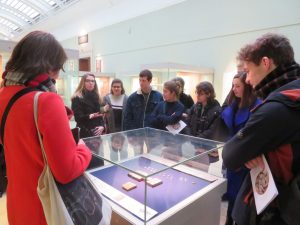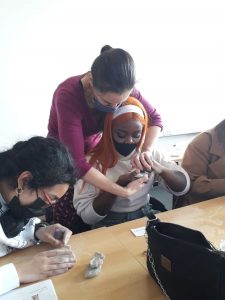The extremely rich source material from the Ancient Near East allows us to reflect on our own society from a distant perspective. Ancient Mesopotamians lived in a society very different from ours, but had the same concerns about their health, the future of their children, war, social status, wealth. And large numbers of clay documents on which they wrote about these concerns – school exercises, textbooks and dictionaries, contracts and letters, poems and epics, rituals, administrative lists, royal inscriptions, etc. – have been excavated during the last centuries. The direct and diverse nature of these sources allows us to inquire about the various aspects of Mesopotamian life and, subsequently, to reflect on our own social, economic, religious, and political behavior.
What are the key factors to accumulate property? Social status, survival, profit seeking?
How do people deal with illness and death?
How does a ruler justify the invasion of a neighbouring country? Is it a military action or a war caused by the others?
These reflections form the point of departure for the teaching offered by the department of Assyriology.
Courses
 The overview course “History of the Ancient Near East”, offers insights into the periodization, the main events, and their dynamics, alongside an exploration of specific topics investigated through case-studies and primary sources.
The overview course “History of the Ancient Near East”, offers insights into the periodization, the main events, and their dynamics, alongside an exploration of specific topics investigated through case-studies and primary sources.
In the courses “Ancient Near Eastern Society and Religion“, and “Ancient Near Eastern Languages and Civilizations” (link), the lectures cover various themes. During several tutorials, students and lecturer work on a project around a theme like “the destruction of cultural identity” or “power and propaganda”. Departing from what may be learned from Ancient Near Eastern sources, we reflect on the matter, and present an essay on a topic of choice.
Cuneiform at school

The workshop Wie schrijft die blijft – Words may live forever, brings cuneiform writing to classrooms all over Flanders. Seeing, and using an alien writing system makes the children aware of the omnipresence of writing, of its possibilities and restrictions, and its constantly changing aspects.
The workshop can be adapted for primary school pupils and for high school students. After a thought-provoking introduction, students can write their own cuneiform clay tablet.